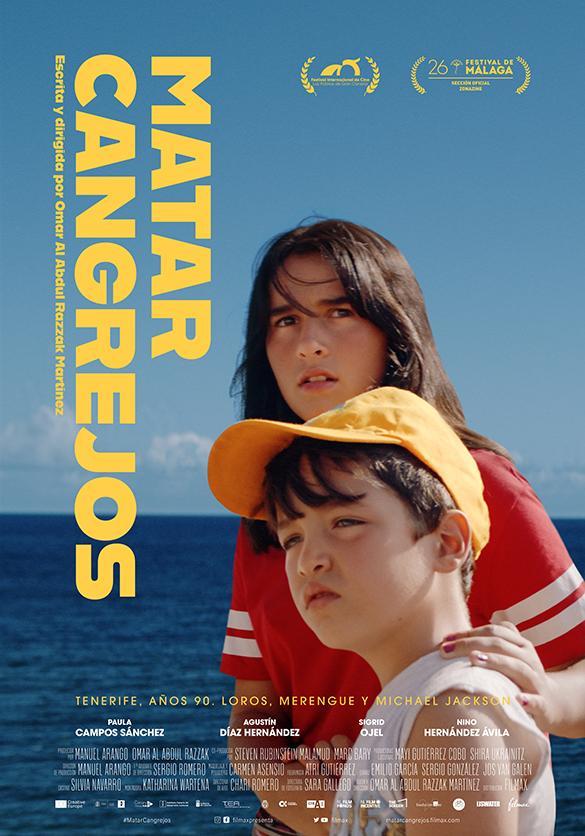
The Canary Islands have a representation in the cinema that is quite distorted with respect to reality. We must applaud the increase in filming brought about by favorable taxation, but the films shot tell stories of people who arrive or leave, who come on vacation to the islands or take refuge there to resolve a conflict. The filmed spaces reiterate the cliché of coasts, beaches and hotels, but the canaries themselves and their ways of life remain very much on the margins. If we had to characterize this “Canarian cinema” we would say that it is a cinema of absence or of the outsider.
Titles like mararia (Antonio Betancor, 1998) or Mambí (Teodoro and Santiago Ríos, 1998) who addressed stories of canaries and/or were set in the community. It is true that there are more recent works, such as the documentary medium-length Amaro Pargo: between legend and history (Juan Alfredo Amil, 2017). And, of course, the two installments of the series Hierro (Pepe and Jorge Coira, 2019-2022) managed to make the territory go beyond the mere framework or landscape to become a human and social space.
The Canarian-Syrian filmmaker Omar Razzak Martínez explains that he has returned to the island of Tenerife to take a look at the 90s of his childhood: «I left Tenerife, a Spanish island in African waters, twenty years ago and, now that I have I had my first child, all my childhood memories have come back to me. The year that Michael Jackson visited the island for his only European concert; the weekend my sister and I spent in a cave house; or the demolition of a half-built hotel by the sea. Our first visit to Loro Parque with its parrot and dolphin shows. And the first immigrant boat to arrive in the Canary Islands, opening a new path to Europe across the Atlantic. This film is an attempt to sort out all those memories.”
Probably this is one of the requirements for the solvency of the work of art: to cement it on the world that has been lived or is known in depth. From there, the director composes a valuable story where very universal issues come together. With a good dose of documentary, kill crabs He places his action in a small cove where Rayco and Paula’s grandmother lives, afraid that their little house will be thrown down for lack of deeds, just as the monstrous concrete skeleton of an illegal hotel is going to be demolished. The mother of these children works without enthusiasm in Loro Parque and plans to receive Michael Jackson at the airport, although her future is shaken by an unwanted pregnancy. The pre-adolescent Paula integrates with other boys her age and some other older ones with antisocial behaviors. Rayco seeks the company of an old drunken fisherman and a Dutchman stranded in that corner of the island.

The director is right in choosing Rayco and Paula’s perspective to tell their story or, even better, to compose a fragmentary chronicle of memories of a place and time. These two characters on which the story revolves are strong because, in their fragility as minors located in an unfavorable socioeconomic context, they immediately achieve the empathy of the viewer. That is why we understand and accept Paula’s clumsiness. And, above all, we admire that 8-year-old boy who has to take care of the old man and prevent him from going into the sea with his boat, and his sister who accompanies the grandmother to the administrative office or serves as a support for her mother who gives security.
The two boys embody a level headedness and survival skills that is not common in their hostile environment. They live near an airport runway and rebel against the deafening noise of takeoffs, hurling insults at travelers leaving the island. They have to take care of adults and avoid the nihilism of the quarrelsome adolescents they have as friends. It is not easy to demystify the mother who fancies that Michael Jackson admires her regional costume and smiles at her; nor grow up without having known the father. And the small actors have deserved a silver biznaga in Malaga.
The canary anchorage of kill crabsdevoid of any stereotypes and reluctant to “resorts”, is consolidated by denouncing the urban disasters of the coast, workplaces that are not very stimulating, prickly pears attacked at night and with the humble procession of the Virgen del Carmen accompanied by devotees with thirds of beer in hand (sic).
A film that, opting for a certain episodic narrative, manages to convince the viewer of the authenticity of people, places and situations. Almost nothing.
kill crabs (Omar A. Razzak, 2023) ⭐️⭐️⭐️½
Source: https://www.cineenserio.com/matar-cangrejos-autenticidad-canaria/


